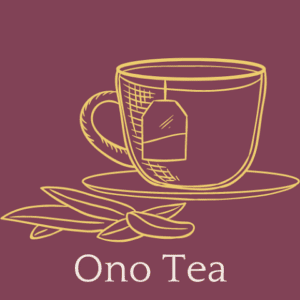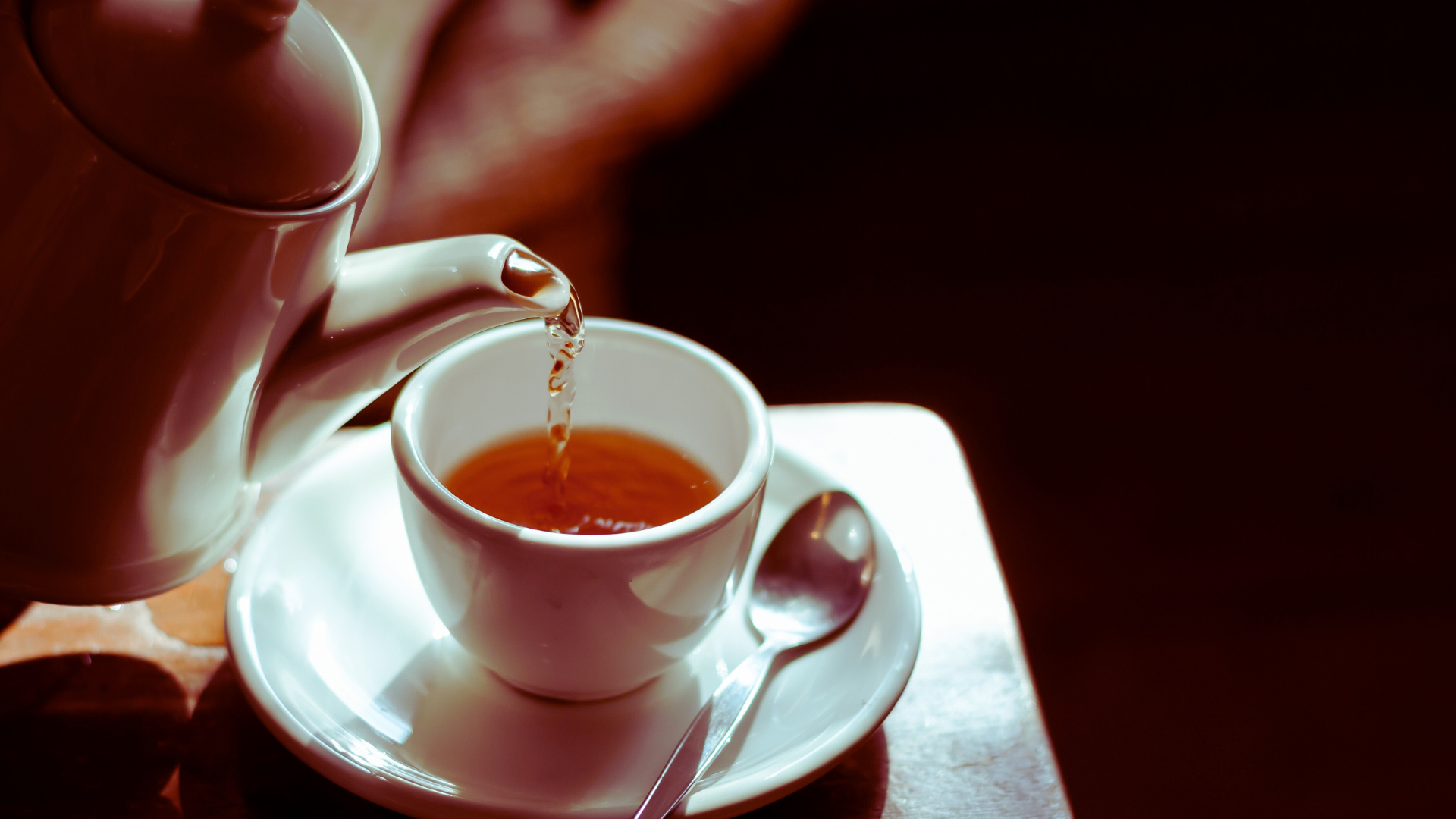Herbal teas have been cherished for centuries across cultures, not only for their soothing flavors but also for their potential to enhance well-being. Among the vast array of herbal infusions, chamomile, peppermint, and rooibos stand out as three of the most popular and widely studied options. These teas, derived from distinct plants, offer a range of health benefits backed by both traditional use and modern scientific research.
From promoting relaxation to aiding digestion and supporting heart health, chamomile, peppermint, and rooibos have earned their place in the cups of health-conscious individuals worldwide. In this article, we’ll dive into the unique properties of each tea, explore their scientifically supported benefits, and consider how they can be incorporated into daily life for optimal wellness.
Chamomile: The Calming Classic
Chamomile tea, brewed from the dried flowers of the Matricaria chamomilla or Chamaemelum nobile plants, is often synonymous with relaxation. Its delicate, floral flavor and subtle apple-like undertones have made it a bedtime favorite, but its benefits extend far beyond a good night’s sleep. Chamomile has been used in traditional medicine for millennia, particularly in Europe and the Middle East, to treat ailments ranging from anxiety to gastrointestinal distress.
One of chamomile’s most celebrated effects is its ability to promote relaxation and improve sleep quality. This is largely attributed to apigenin, a bioactive compound found in the plant. Apigenin binds to specific receptors in the brain, reducing activity in the central nervous system and inducing a mild sedative effect. A 2016 study published in Phytomedicine explored this mechanism, finding that chamomile extract significantly improved sleep quality in elderly participants compared to a placebo. For those struggling with insomnia or restless nights, a warm cup of chamomile tea before bed could serve as a natural remedy.
Beyond sleep, chamomile boasts anti-inflammatory and antioxidant properties. These effects stem from its rich content of flavonoids and other polyphenolic compounds, which help neutralize free radicals—unstable molecules that can damage cells and contribute to chronic diseases. Research has suggested that chamomile may reduce inflammation linked to conditions like arthritis or irritable bowel syndrome (IBS). A 2015 review in Molecular Medicine Reports highlighted chamomile’s potential to soothe gastrointestinal inflammation, making it a go-to for those with digestive discomfort.
Chamomile also shows promise in supporting mental health. Its calming properties may help alleviate symptoms of anxiety and mild depression. A 2019 clinical trial published in Journal of Clinical Psychopharmacology found that long-term chamomile use reduced generalized anxiety disorder (GAD) symptoms in participants, offering a complementary approach to conventional treatments. While it’s not a substitute for professional care, chamomile tea could be a gentle ally for managing daily stress.
Incorporating chamomile into your routine is simple. Steep 1–2 teaspoons of dried chamomile flowers in hot water for 5–10 minutes, strain, and enjoy. It pairs well with a touch of honey for added sweetness, though it’s naturally mild enough to drink plain. Whether sipped to unwind after a long day or to ease a nervous stomach, chamomile’s versatility makes it a staple in herbal medicine cabinets.
Peppermint: The Digestive Dynamo
Peppermint tea, made from the leaves of the Mentha piperita plant, is instantly recognizable for its invigorating aroma and cool, refreshing taste. Native to Europe and the Middle East, peppermint has long been valued for its medicinal properties, particularly its effects on the digestive system. Unlike chamomile, which soothes through sedation, peppermint energizes and stimulates, making it an excellent midday pick-me-up.
The star component of peppermint is menthol, a compound responsible for its signature cooling sensation. Menthol acts as a natural muscle relaxant, particularly in the gastrointestinal tract. This makes peppermint tea a popular remedy for indigestion, bloating, and irritable bowel syndrome (IBS). A 2014 meta-analysis in the Journal of Clinical Gastroenterology reviewed multiple studies and concluded that peppermint oil—a concentrated form of the herb—significantly reduced IBS symptoms, including abdominal pain and discomfort. While tea is less potent than oil, it still delivers menthol in a gentler, more accessible form, offering relief without overwhelming the system.
Peppermint’s benefits don’t stop at digestion. Its antispasmodic properties can also ease tension headaches and migraines. By relaxing blood vessels and improving circulation, menthol may reduce the intensity of headache symptoms. A 2016 study in Evidence-Based Complementary and Alternative Medicine found that topical peppermint oil relieved headache pain, and while drinking tea doesn’t provide the same direct application, the aromatic steam from a hot cup may offer mild relief when inhaled.
Additionally, peppermint tea may support respiratory health. The menthol in peppermint acts as a natural decongestant, helping to clear nasal passages and soothe sore throats. This makes it a comforting choice during cold and flu season. While scientific evidence on this effect is largely anecdotal, a 2018 review in Phytotherapy Research noted peppermint’s traditional use for respiratory ailments, suggesting it could complement other treatments.
Peppermint tea is easy to prepare—steep 1–2 teaspoons of dried leaves or a handful of fresh leaves in hot water for 5–7 minutes. Its bold flavor stands well on its own, though some enjoy it with a splash of lemon. Caffeine-free and invigorating, peppermint is ideal for those seeking digestive support or a refreshing alternative to sugary drinks.
Rooibos: The Antioxidant Powerhouse
Rooibos, pronounced “roy-boss,” hails from the Aspalathus linearis shrub native to South Africa. Unlike chamomile and peppermint, which are true herbal teas, rooibos is often called “red tea” due to its vibrant hue after fermentation. With a naturally sweet, earthy flavor, rooibos has gained global popularity not only for its taste but also for its impressive health benefits, particularly its antioxidant and heart-protective properties.
Rooibos is packed with antioxidants, including aspalathin and quercetin, which combat oxidative stress in the body. Oxidative stress occurs when free radicals outnumber antioxidants, leading to cellular damage and increasing the risk of chronic conditions like heart disease and cancer. A 2018 study in Food & Function demonstrated that rooibos tea increased antioxidant levels in participants’ blood, suggesting it could play a role in preventing oxidative damage over time. Unlike green or black tea, rooibos is caffeine-free and low in tannins, making it a gentler option for those sensitive to stimulants or astringent flavors.
Heart health is another area where rooibos shines. Research indicates that its antioxidants may lower blood pressure and improve cholesterol levels. A 2015 study published in Journal of Ethnopharmacology found that rooibos consumption reduced LDL (“bad”) cholesterol and increased HDL (“good”) cholesterol in adults at risk for cardiovascular disease. By supporting healthy circulation and reducing inflammation, rooibos offers a heart-friendly alternative to caffeinated beverages.
Rooibos may also benefit those with type 2 diabetes or insulin resistance. Aspalathin, a compound unique to rooibos, has been shown to regulate blood sugar levels by enhancing glucose uptake in cells. A 2020 study in Phytomedicine explored this effect in animal models, noting that rooibos extracts improved insulin sensitivity. While human studies are still limited, these findings suggest rooibos could complement a balanced diet for blood sugar management.
To brew rooibos, steep 1–2 teaspoons of loose leaves in boiling water for 5–10 minutes—the longer steep time enhances its rich flavor. It’s delicious hot or iced, and its natural sweetness pairs well with fruit or spices like cinnamon. For a caffeine-free boost of antioxidants, rooibos is hard to beat.
Combining the Trio: A Holistic Approach
While chamomile, peppermint, and rooibos each offer distinct benefits, they can also complement one another in a holistic wellness routine. Chamomile’s calming effects pair beautifully with peppermint’s digestive support, creating a soothing yet revitalizing blend for after meals. Rooibos, with its antioxidant punch, can serve as a daily staple to bolster overall health, while chamomile and peppermint address specific needs like sleep or stomach upset. Experimenting with blends—such as chamomile-rooibos for a relaxing antioxidant boost—can tailor the experience to individual preferences.
These teas are generally safe for most people, though moderation is key. Peppermint may worsen acid reflux in some, while chamomile could trigger allergies in those sensitive to plants in the Asteraceae family (like ragweed). Rooibos is well-tolerated but should be consumed mindfully in large amounts due to its effects on blood sugar. Consulting a healthcare provider is wise if you’re pregnant, nursing, or on medication, as herbal teas can interact with certain drugs.
Conclusion
Chamomile, peppermint, and rooibos are more than just comforting beverages—they’re nature’s gift to health and vitality. Chamomile calms the mind and body, peppermint invigorates and soothes the gut, and rooibos defends against oxidative stress and supports the heart. Together, they offer a spectrum of benefits that align with both ancient wisdom and modern science. Whether you’re sipping chamomile to unwind, peppermint to refresh, or rooibos to nourish, these herbal teas invite you to slow down, savor the moment, and nurture your well-being—one cup at a time.
Sources
- Sasaki, Y., Takimoto, Y., Koyama, Y., Koda, M., Goto, K. and Taniguchi, M., 2024. Effects of rooibos tea (Aspalathus linearis) on oxidative stress and metabolic parameters in adults with pre-diabetes: a randomized controlled trial. Nutrients, [online] 16(1), p.123. Available at: https://pmc.ncbi.nlm.nih.gov/articles/PMC10774856/
- Mao, J.J., Xie, S.X., Keefe, J.R., Soeller, I., Li, Q.S. and Amsterdam, J.D., 2016. Long-term chamomile (Matricaria chamomilla L.) treatment for generalized anxiety disorder: a randomized clinical trial. Phytomedicine, [online] 23(14), pp.1735-1742. Available at: https://pubmed.ncbi.nlm.nih.gov/24100754/
- Amsterdam, J.D., Li, Y., Soeller, I., Rockwell, K., Mao, J.J. and Shults, J., 2019. Chamomile (Matricaria recutita) may have antidepressant activity in anxious depressed humans – an exploratory study. Journal of Clinical Psychopharmacology, [online] 39(4), pp.307-312. Available at: https://pmc.ncbi.nlm.nih.gov/articles/PMC6612361/

